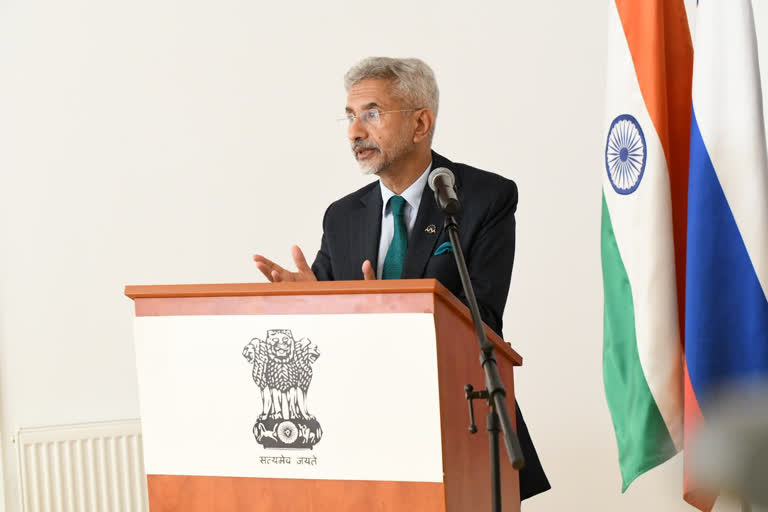New Delhi: External Affairs Minister Subrahmanyam Jaishankar on Wednesday said 'Democracy' is not just incomplete without delivery; this can even affect its credibility.
Speaking at the event of International Day of Democracy at the international webinar "Independent India@75: Democratic Traditions" conducted by the Indian Council for Cultural Relations, Jaishankar said, "It is appropriate that the International Day of Democracy is commemorated with particular enthusiasm in the world's largest and most energetic democracy. After all, for India, democracy was not just a choice we made in 1947, but a way of life well before that. Few societies can compare with the pluralism that has been our historical characteristic.
Forms of ballots and representative government have a long tradition in India. Some 2,500 years ago, the Lichchhavi Republics had developed a consultative and democratic process of governance, he pointed out. Similarly, village panchayats with delegates gathering for a type of local grand assembly was an established custom in the 10th century Chola era. Indeed, variations of community-based exercises of rights and responsibilities and broad participation existed in many regions. They speak of our inherent attributes of transparency, diversity and pluralism.
He said that contemporary India's sense of pride in its electoral democracy is visible. We contrast the vigour and credibility of our systems with those who have rejected such exercises as much as those who practise them imperfectly.
Also Read: Three more suspected terrorists arrested by Delhi Police Special Cell from UP
"The consciousness of the power of an individual’s vote even among socially and economically underprivileged voters – or perhaps more so among them – is a statement of how precious and hard-earned this privilege remains. Every five years, a general election in India sets a new record for the world’s largest such festival," said Jaishankar.
In 2019, 912 million people were eligible to vote – more than all other democracies combined. Two of every three voters made the effort to go to the polling station, a contrast to indifference in many other societies.
"The quality and morality of democracy, however, lies beyond just numbers. It can be found in the transitioning of Indian society to a deeper, more culturally rooted and authentic identity", added EAM. He highlighted that democracy has both driven this process and in turn, been enriched by it. Indeed, a faithful reflection of society in its elected representatives is what gives any democracy real strength. And that is what we see in India today.
Democracy is not just incomplete without delivery; this can even affect its credibility. Whether it is providing access to toilets, electricity and piped water, or in the near universalisation of bank accounts, democratic means are now realizing democratic ends, pointed out Jaishankar. The equality of the vote must necessarily co-exist with the equity of human dignity. One is pointless without the other. Seen in that framework, India’s ongoing accomplishments are validating its democratic credentials.
Also Read: India goes for 100% FDI in telecom sector, reforms expected to boost economy
A country's external outlook inevitably goes together with its internal values. It is only to be expected that a nation and a people would be comfortable with others of a similar bent of mind, he said, while adding that it also encourages the like-minded to work together on global issues. This also explains the context of India’s quest for a global commons governed by norms and rules, for political and cultural arrangements that accommodate diversity and multi-polarity, and for trade, infrastructure and connectivity projects determined by transparency, sustainability and buy-in of host communities.
As India rises and its capacities and capabilities grow, it will naturally contribute more to the world. A civilizational state re-emerging on the world stage and draws on its heritage will create its imprint, he reiterated. In a truly democratic world, such an India will be more India rather than more West. Its developmental template and its embracing of wider responsibilities will draw even greater attention to the salience of its model.
He said that as a full-blooded member of the Global South, as a system that intersects so much with the West, and as a polity with a flavour that is uniquely its own, India's trajectory will surely influence the global journey. The International Day of Democracy is the ideal occasion to discuss, cherish and celebrate that symbiosis.
Also Read: Union Cabinet approves Rs 26,058 cr PLI scheme for auto, drone sectors



